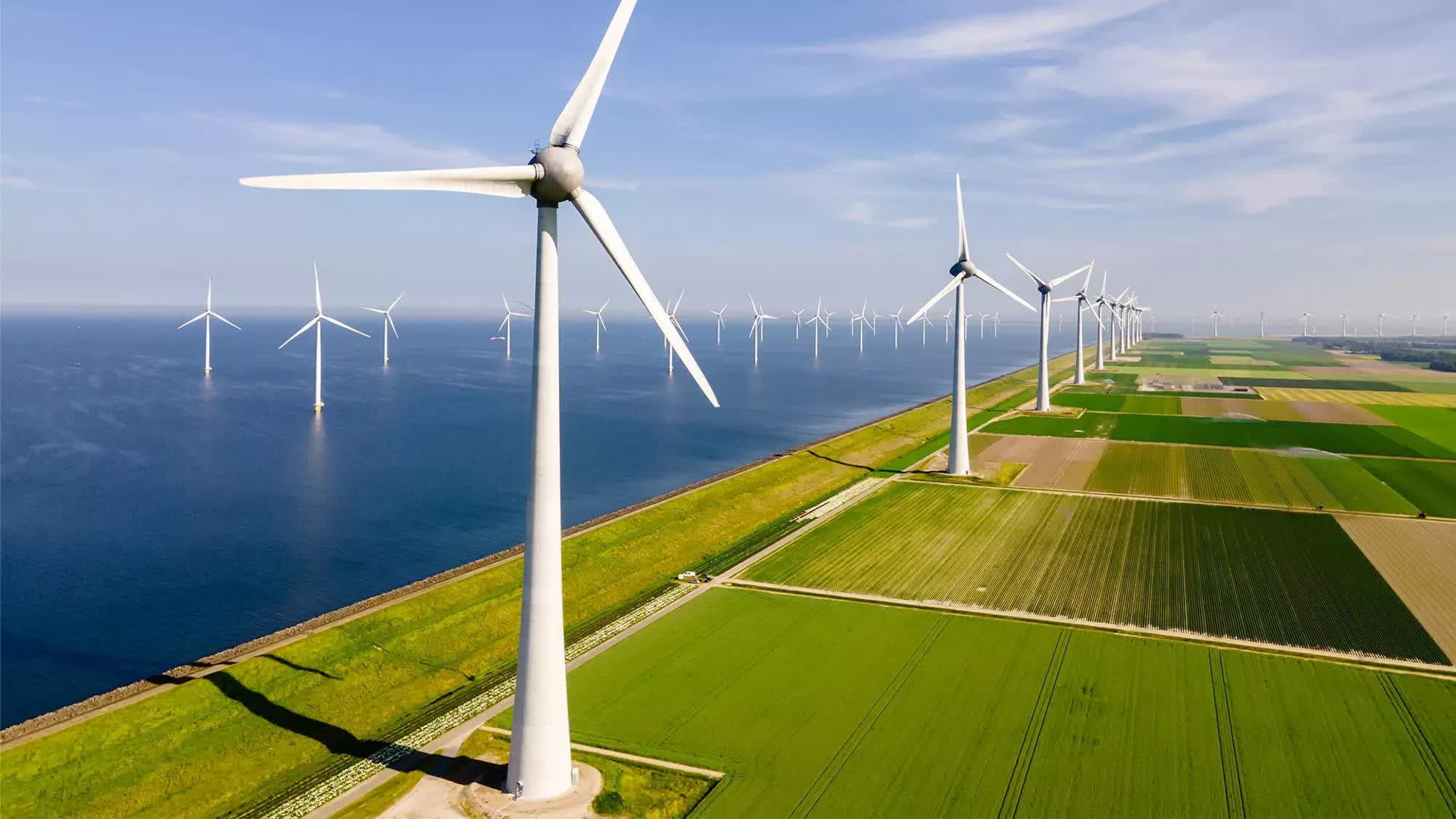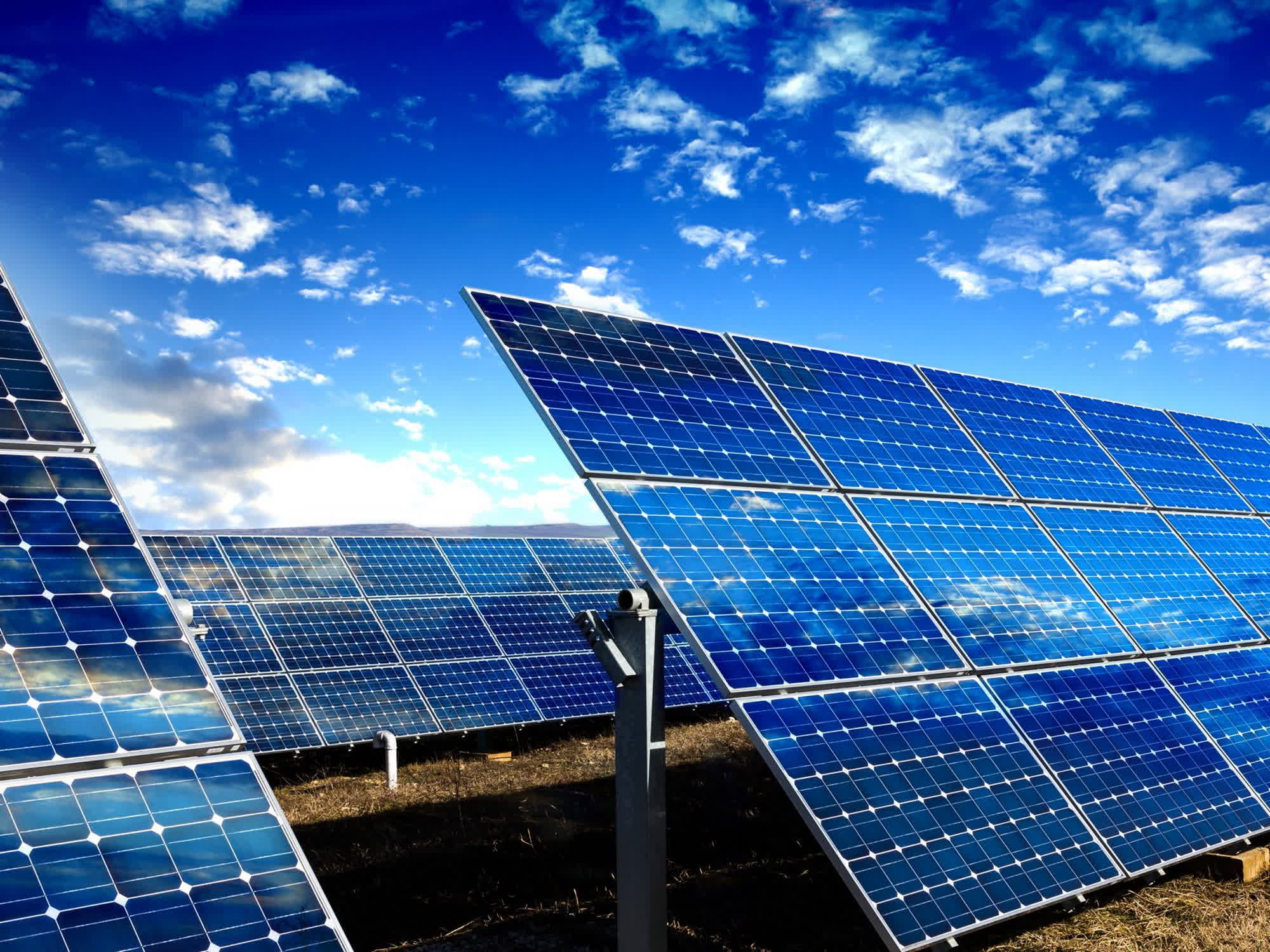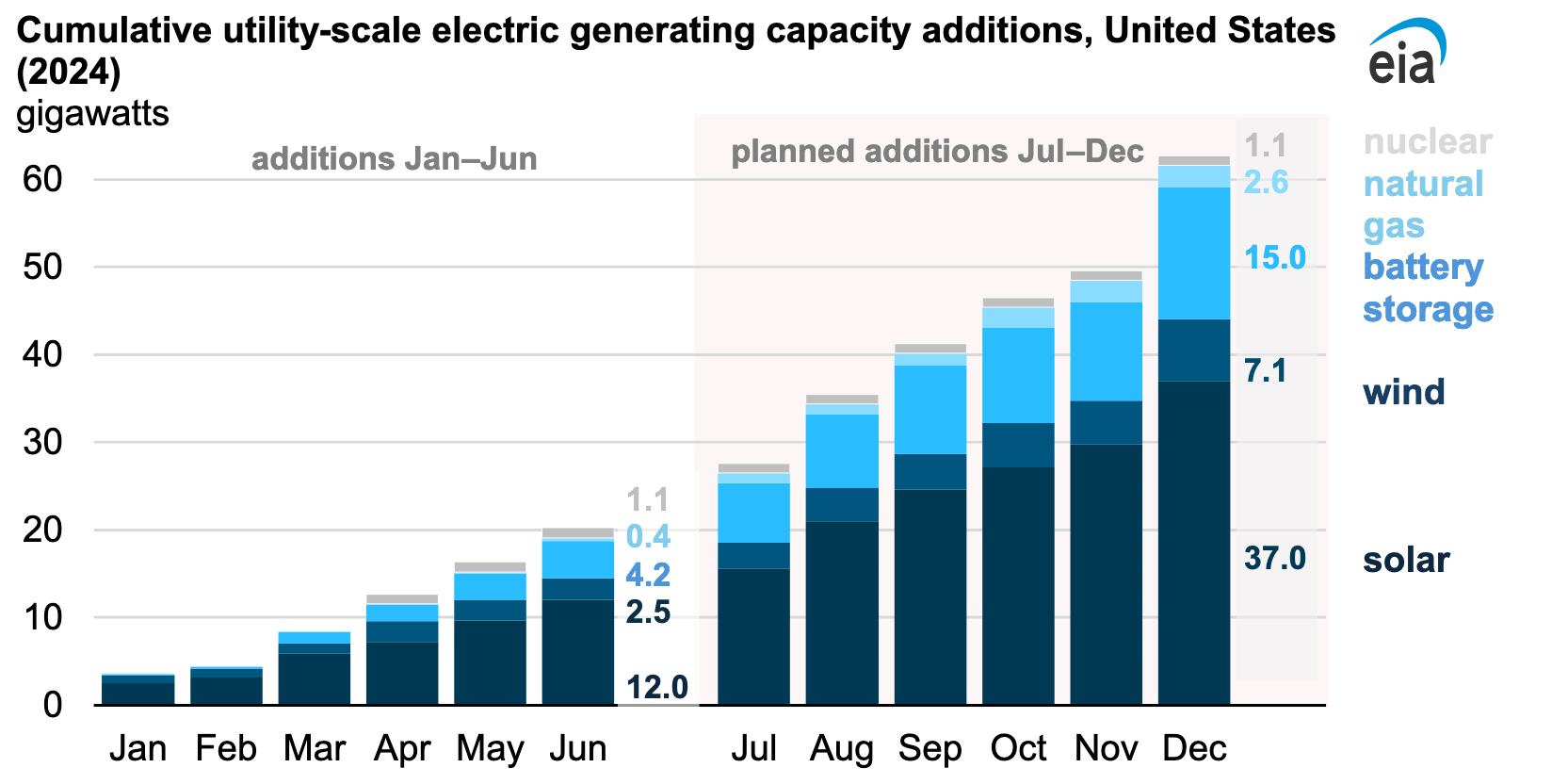In a nutshell: Solar and battery storage are having an absolute field day this year in the US. According to fresh numbers from the Energy Information Administration, the two sources accounted for a staggering 80% of all new electricity capacity added in the first half of 2024.
Solar alone made up 60% of the 20.2 gigawatts of fresh capacity that went online from January through June. A large chunk of this can be attributed to two plants – a 600+ megawatt installation in Texas and another in Nevada. These two states were also leading the solar charge, which doesn't come as a surprise given their sunny dispositions.
At the same time, battery installations also saw a major surge, clocking in at 4.2 GW for over 20% of total additions. California took the crown here with over a third of the nation's deployments, but Texas, Arizona, and Nevada also contributed heftily. The massive 380 MW Gemini installation in Nevada and Arizona's 300 MW Eleven Mile solar-plus-storage project were the largest projects in this category that came online in 2024.

Wind pitched in its two cents as well, adding a respectable 2.5 GW of new turbines. But compared to solar and battery, wind's build-out is quaint. Canyon Wind (309 MW) and Goodnight (266 MW) were the largest wind projects to come online this year, and both are located in Texas.
Nuclear power also added to the capacity mix, though just a small piece. The 1.1 GW Unit 4 reactor at Georgia's Vogtle plant came online in April, making Vogtle the largest nuclear facility in the US with four reactors in total – the only site in the country operating that many under one roof.
The second half of the year could make the first six months look tame, if EIA projections hold true. They see over 42.6 GW of fresh capacity being added in the second half of the year: 25 GW of that is solar, 10.8 GW is battery storage, and 4.6 GW is wind.
Putting it simply, a stunning 96% of 2024's new electricity capacity is on track to be emission-free this year, thanks to contributions from solar, wind, battery, and nuclear power. These numbers become all the more important when China is brought into the picture. The country has already achieved the massive 1,200 gigawatt renewable target it set for 2030, six years ahead of schedule.
Meanwhile, the retirement of existing power plants in the US slowed in 2024, with only 5.1 GW taken offline in the first half versus 9.2 GW during the same period in 2023. Of the retired capacity, 53% was natural gas-fired like Massachusetts' massive 1.4 GW Mystic plant, followed by 41% from coal plants including Florida's 626 MW Seminole Unit 1 and Pennsylvania's 626 MW Homer City Unit 1.

